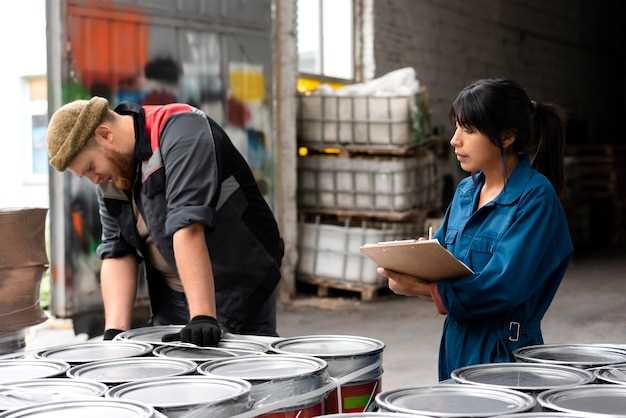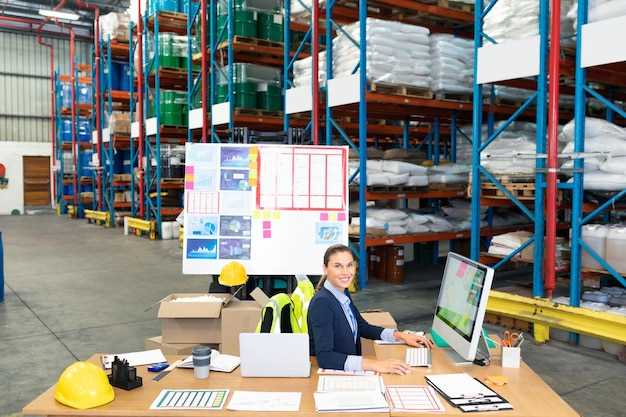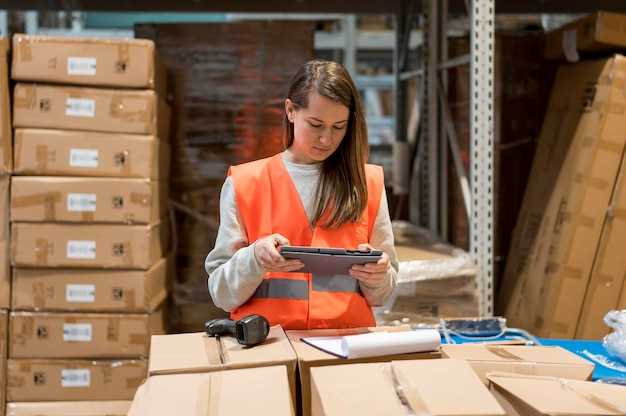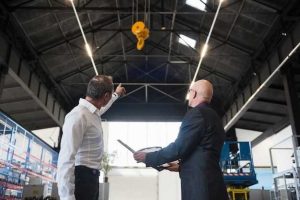
When it comes to international trade, one cannot underestimate the significance of a seamless customs clearance process. The smooth flow of goods across borders is crucial for businesses to thrive and for economies to prosper. In this article, we will explore the various strategies and techniques that can be employed to optimize customs procedures, ensuring a hassle-free importing process.
Efficient customs clearance is not merely a matter of paperwork and documentation; it is a complex web of regulations, inspections, and coordination between multiple stakeholders. By implementing streamlined procedures, businesses can minimize delays, reduce costs, and enhance their overall competitiveness in the global market.
Enhancing transparency and communication is a key factor in expediting customs clearance. By establishing clear lines of communication between importers, customs officials, and other relevant parties, potential bottlenecks can be identified and resolved in a timely manner. This can be achieved through the use of advanced technology platforms that facilitate real-time tracking and monitoring of shipments, enabling stakeholders to stay informed and take proactive measures when necessary.
Implementing risk-based assessments is another effective approach to expedite the customs clearance process. By leveraging data analytics and intelligence, customs authorities can identify high-risk shipments and allocate resources accordingly. This targeted approach allows for faster processing of low-risk consignments, while ensuring that stringent inspections are conducted on goods that pose potential security or regulatory concerns.
Understanding the Importance of Streamlined Customs Clearance

In the realm of international trade, the smooth flow of goods across borders is crucial for businesses to thrive. One of the key factors that contribute to this seamless process is efficient customs clearance. This section aims to shed light on the significance of streamlined customs clearance and its impact on the importing process.
Enhancing Trade Facilitation
Efficient customs clearance plays a pivotal role in enhancing trade facilitation. By minimizing bureaucratic hurdles and unnecessary delays, businesses can experience a more streamlined import process. This, in turn, leads to increased efficiency, reduced costs, and improved competitiveness in the global market.
Ensuring Compliance with Regulations
Another vital aspect of efficient customs clearance is ensuring compliance with regulations. Customs authorities enforce various rules and regulations to protect national security, public health, and economic interests. By adhering to these regulations, importers can avoid penalties, delays, and potential reputational damage. Efficient customs clearance procedures help businesses navigate these regulations smoothly, ensuring a compliant and hassle-free importing process.
- Minimizing Costs and Delays
- Facilitating Supply Chain Management
- Promoting Economic Growth
- Enhancing Transparency and Accountability
In conclusion, understanding the importance of streamlined customs clearance is crucial for businesses engaged in international trade. It not only facilitates trade facilitation but also ensures compliance with regulations, minimizes costs and delays, and promotes economic growth. By recognizing the significance of efficient customs clearance, businesses can optimize their importing process and gain a competitive edge in the global market.
Key Steps to Streamline the Customs Clearance Process
In order to optimize and expedite the movement of goods across international borders, it is crucial to implement a series of strategic actions that can simplify the process of customs clearance. By following these key steps, businesses can ensure a smooth and efficient importation process, minimizing delays and avoiding unnecessary costs.
1. Documentation Preparation: The first step in streamlining customs clearance is to ensure that all necessary documentation is accurately prepared and organized. This includes invoices, packing lists, certificates of origin, and any other relevant paperwork. By having these documents readily available and properly completed, customs officials can quickly verify the legitimacy and value of the imported goods.
2. Classification and Valuation: Properly classifying and valuing the imported goods is essential for determining the applicable customs duties and taxes. It is crucial to accurately identify the goods according to the Harmonized System (HS) codes and provide a correct valuation based on the transaction value or other approved methods. This step helps prevent delays and disputes during the customs clearance process.
3. Compliance with Regulations: Adhering to all relevant customs regulations and requirements is vital to ensure a smooth customs clearance process. This includes compliance with import restrictions, licensing requirements, and any applicable trade agreements or preferential trade programs. By staying updated on the latest regulations and maintaining compliance, businesses can avoid penalties and delays.
4. Efficient Communication: Effective communication with customs authorities and other relevant stakeholders is crucial for streamlining the customs clearance process. Maintaining open lines of communication, promptly responding to inquiries, and providing accurate information can help resolve any issues or concerns efficiently. This step helps build trust and cooperation with customs officials, facilitating a smoother importation process.
5. Utilizing Technology: Leveraging technology can significantly enhance the efficiency of customs clearance procedures. Electronic data interchange (EDI), online customs portals, and automated systems can streamline the submission and processing of customs documents, reducing manual paperwork and minimizing the risk of errors. Embracing digital solutions can expedite the customs clearance process and improve overall operational efficiency.
| Benefits of Streamlined Customs Clearance |
|---|
| 1. Faster processing times |
| 2. Reduced costs and fees |
| 3. Minimized risk of delays and penalties |
| 4. Improved supply chain efficiency |
| 5. Enhanced customer satisfaction |
By implementing these key steps and embracing efficient customs clearance practices, businesses can optimize their importation process, ensuring a seamless flow of goods across international borders. Streamlining customs clearance not only saves time and money but also contributes to a more efficient global trade environment.
Utilizing Technology for Faster and More Accurate Customs Declarations
In today’s globalized world, the process of importing goods across international borders is a complex and time-consuming task. However, by harnessing the power of technology, businesses can streamline and expedite the customs declaration process, ensuring faster and more accurate clearance of their imported goods.
Enhanced Data Management
One of the key ways technology can facilitate faster and more accurate customs declarations is through enhanced data management systems. By utilizing advanced software solutions, businesses can efficiently collect, organize, and analyze the necessary information required for customs declarations. This not only reduces the risk of errors and delays but also enables customs authorities to quickly process and clear the imported goods.
Automated Customs Declarations
Another significant advantage of technology in customs declarations is the ability to automate the process. Through the implementation of electronic systems and online platforms, businesses can submit customs declarations electronically, eliminating the need for manual paperwork. This not only saves time but also reduces the likelihood of human errors, ensuring greater accuracy in the declaration process.
- Electronic Data Interchange (EDI) systems enable seamless communication and exchange of information between businesses and customs authorities, allowing for faster processing and clearance of goods.
- Advanced scanning and imaging technologies enable customs authorities to efficiently inspect and verify the contents of imported goods, reducing the need for physical inspections and expediting the clearance process.
- Real-time tracking and monitoring systems provide businesses and customs authorities with accurate and up-to-date information on the location and status of imported goods, facilitating smoother coordination and faster customs clearance.
In conclusion, by embracing technology and leveraging its capabilities, businesses can significantly enhance the speed and accuracy of customs declarations. Through enhanced data management systems and automated processes, the importing process becomes more efficient, reducing delays and ensuring a smoother flow of goods across international borders.
Building Strong Relationships with Customs Officials for Expedited Clearances
In order to facilitate a smooth and efficient importing process, it is crucial for businesses to establish strong relationships with customs officials. By fostering positive connections with these officials, companies can expedite the clearance of their goods and minimize delays and complications. This section will explore the importance of building such relationships and provide strategies for establishing effective communication and collaboration with customs officials.
Establishing trust and rapport: Developing a foundation of trust and rapport with customs officials is essential for expediting clearances. By demonstrating professionalism, integrity, and compliance with regulations, businesses can build credibility and earn the trust of customs officials. This can be achieved through transparent and accurate documentation, timely submission of required information, and adherence to customs procedures and guidelines.
Effective communication: Open and effective communication is key to building strong relationships with customs officials. Businesses should maintain regular contact with customs authorities, seeking clarification on regulations, requirements, and any potential issues. Clear and concise communication, both written and verbal, is crucial to ensure that customs officials have all the necessary information to process clearances efficiently.
Collaboration and cooperation: Collaboration between businesses and customs officials can significantly expedite the clearance process. By proactively engaging with customs authorities, companies can gain insights into potential challenges and work together to find solutions. This collaborative approach can involve sharing information about the nature of imported goods, providing necessary documentation in advance, and addressing any concerns or queries raised by customs officials promptly.
Continuous improvement: Building strong relationships with customs officials is an ongoing process that requires continuous improvement. Businesses should regularly evaluate their import processes and identify areas for enhancement. By staying updated on changes in customs regulations and requirements, companies can demonstrate their commitment to compliance and streamline their clearance procedures, leading to faster and more efficient imports.
Overall, building strong relationships with customs officials is crucial for expediting clearances and ensuring a smooth importing process. By establishing trust, maintaining effective communication, fostering collaboration, and continuously improving import processes, businesses can navigate customs procedures more efficiently and minimize delays and complications.
Ensuring Compliance with Customs Regulations to Avoid Delays and Penalties
In order to facilitate a smooth and efficient importing process, it is crucial for businesses to ensure compliance with customs regulations. Failure to comply with these regulations can result in significant delays and penalties, which can have a detrimental impact on the overall importing process.
Understanding Customs Regulations
Customs regulations refer to the set of rules and requirements imposed by the government or relevant authorities to control the importation and exportation of goods. These regulations aim to protect national security, public health, and the economy, while also ensuring fair trade practices.
Compliance with customs regulations involves adhering to specific documentation and procedural requirements, such as providing accurate and complete import/export declarations, obtaining necessary permits and licenses, and paying applicable duties and taxes. It also includes complying with product-specific regulations, such as safety standards, labeling requirements, and restrictions on certain goods.
The Importance of Compliance

Ensuring compliance with customs regulations is essential for several reasons. Firstly, it helps to avoid unnecessary delays in the importing process. Customs authorities thoroughly inspect shipments to verify compliance, and any discrepancies or non-compliance can lead to inspections, additional paperwork, and potential hold-ups at the border.
Secondly, compliance helps businesses avoid penalties and fines. Customs authorities have the power to impose penalties for non-compliance, which can range from monetary fines to seizure of goods. These penalties not only result in financial losses but can also damage a company’s reputation and future business prospects.
Furthermore, compliance with customs regulations demonstrates a commitment to ethical and legal business practices. It enhances trust and credibility with customers, suppliers, and partners, which can lead to long-term business relationships and opportunities for growth.
In conclusion, ensuring compliance with customs regulations is crucial for a smooth and efficient importing process. By understanding and adhering to these regulations, businesses can avoid delays, penalties, and reputational damage, while also fostering trust and credibility in the global marketplace.
Hiring a Customs Broker to Navigate Complex Customs Procedures
When it comes to successfully navigating the intricate and convoluted world of customs procedures, many importers find themselves overwhelmed and unsure of where to begin. This is where the expertise of a customs broker becomes invaluable. By hiring a customs broker, importers can ensure a smooth and efficient importing process, avoiding costly delays and potential penalties.
A customs broker is a licensed professional who specializes in customs regulations and procedures. They act as intermediaries between importers and government agencies, ensuring compliance with all necessary requirements and facilitating the smooth flow of goods across international borders. With their in-depth knowledge and experience, customs brokers can navigate the complexities of customs procedures, saving importers time, money, and headaches.
One of the key advantages of hiring a customs broker is their ability to handle the vast amount of paperwork involved in the importing process. From completing and submitting the necessary documentation to coordinating with various government agencies, customs brokers take care of all the administrative tasks, allowing importers to focus on their core business activities. This not only saves time but also reduces the risk of errors or omissions that could lead to delays or penalties.
Furthermore, customs brokers have a deep understanding of the ever-changing customs regulations and requirements. They stay up-to-date with the latest developments in the field and ensure that importers are fully compliant with all applicable laws. By keeping abreast of changes in tariffs, trade agreements, and import restrictions, customs brokers can help importers make informed decisions and avoid potential pitfalls.
Another advantage of hiring a customs broker is their expertise in handling complex customs procedures. From determining the correct classification and valuation of goods to navigating through the maze of permits, licenses, and inspections, customs brokers have the knowledge and experience to handle even the most intricate aspects of the importing process. This expertise not only ensures compliance but also helps importers optimize their supply chain and minimize costs.
In conclusion, hiring a customs broker is a wise investment for importers looking to navigate the complex customs procedures efficiently. With their expertise, knowledge, and experience, customs brokers can streamline the importing process, ensuring compliance, minimizing delays, and maximizing cost savings. So, if you want to avoid the headaches and complexities of customs procedures, consider hiring a customs broker to guide you through the process.

